MICHAEL A. VENTRELLA: It’s not every day I get to interview a bona fide rock star! Tommy James had so many hits songs in the 60s and early 70s that I could fill the blog just listing them (I Think We’re Alone Now, Crimson and Clover, Draggin’ The Line, Mony Mony, Mirage, Hanky Panky, Crystal Blue Persuasion… you get the idea).  He recently published his autobiography, ME, THE MOB, AND THE MUSIC, which has already gone to its fifth printing. Usually I do these interviews by email, but Mr. James wanted to talk by phone. Do you think I was going to say no?!! We had a great conversation about writing and music!
He recently published his autobiography, ME, THE MOB, AND THE MUSIC, which has already gone to its fifth printing. Usually I do these interviews by email, but Mr. James wanted to talk by phone. Do you think I was going to say no?!! We had a great conversation about writing and music!
Mr. James, it’s an honor to be speaking with you today. Let’s start with the latest news about the play or movie rights that are coming up!
TOMMY JAMES: Well, the book ME, THE MOB AND THE MUSIC is going to be made into a Broadway show and movie.
VENTRELLA: Obviously, it’s going to be a musical!
JAMES: Yes, next year the Nederlander will be bringing it to Broadway. We’re really glad to be associated with them. And they’ll be bringing it not only to Broadway but all over the world.
VENTRELLA: And the movie?
JAMES: The movie is being produced by Barry Rosen and Mary Gleason, and we’ll be making an announcement within the next week or two with a whole lot of things concerning the movie. It’s scheduled for release in 2012 and it’s going to be a real all star cast and a first rate production.
VENTRELLA: Who do you want to play you?
JAMES: That’s above my pay scale!
VENTRELLA: Well, who would you like?
JAMES: There’s probably going to have to be two actors involved because of the time span. The older Tommy quite likely will be played by Val Kilmer. He did a great job with Jim Morrisson a few years ago, and he’s a friend and also is a great actor and a musician. He is being very seriously looked at right now.
I take it you’ve read the book?
VENTRELLA: Yes, I have…
JAMES: So you know that it goes all the way from teenage years to 1990, so there’s quite a time span.
VENTRELLA: Since my blog is mostly about books, let me ask you a few questions about that. What was the process you used when you worked with Martin Fitzpatrick?
JAMES: Martin is very skilled at constructing chapters. The book started out like a train leaving a station, kind of slow and easy paced, and as it gets further into the book it gets faster and faster and faster and faster and by the end of the book, it’s quite riveting. I am very glad he wrote it that way.  I’m glad it’s concise. I’m glad it’s not a particularly long book. I didn’t want it to be drudgery. I wanted it really to the point and easy to read. And I think that was accomplished.
I’m glad it’s concise. I’m glad it’s not a particularly long book. I didn’t want it to be drudgery. I wanted it really to the point and easy to read. And I think that was accomplished.
VENTRELLA: You decided to concentrate the book on your relationship with the mob. Why did you choose that aspect as opposed to marriage relationships or solely on the music for instance?
JAMES: Martin and I actually started out writing a book about music and the studio and that would have been interesting. We were going to call it “Crimson and Clover.” This was almost eight years ago. We got about a third of the way into it and we realized that if we don’t tell the Roulette story, we’re cheating everybody. What happened with Roulette had to be the focal point of the book for a couple of reasons.
I’ve been wanting to tell this story for a very, very long time but I’ve never really felt comfortable doing it.When we decided we wanted to tell the Roulette story, we realized we couldn’t yet because some of these guys were still walking around. So we put the book on the shelf for a couple of years until the last of the ‘Roulette regulars’ passed on.
VENTRELLA: The Genovese family…
JAMES: Exactly. The last one to pass was Giovante, who died in December of ’05 in prison. So the bottom line was that after that, we felt we could really write the book.
VENTRELLA: Any bad experiences since then? No one’s threatened you?
JAMES: No, I haven’t had anything like that although a couple of interesting characters who I thought had passed away hadn’t. Their family members actually came to a couple of our book events and concerts, but I haven’t had any problems.
As soon as we finished the book it got gobbled up by Simon and Shuster. They put it out, since February 16th, and it’s in the fifth printing! So it’s just exploded. I’m amazed. I am really very awed that it has been accepted like this by the media and the fans.
I’ve never been a writer so you never really know if you’ve gotten your point across. Let me tell you – it’s not like writing a song!
Almost immediately we were invited to do the movie and the Broadway show. Since “Jersey Boys,” it’s really opened up Broadway. Rock and roll musicals were sort of taboo a couple of years ago until “Jersey Boys” blew all the doors down.
VENTRELLA: And you have a more interesting story than they do, I think…
JAMES: It’s about real people, and it is a pretty fascinating story. I must say that it is kind of amazing that the star of my autobiography is going to be Morris Levy.
VENTRELLA: But see, you have an interesting story even without that. 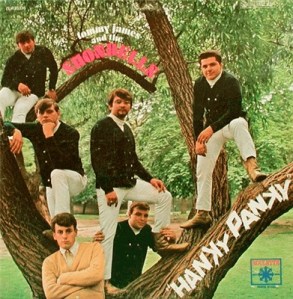 The whole “Hanky Panky” story about how that song became a hit without you even being aware of it…
The whole “Hanky Panky” story about how that song became a hit without you even being aware of it…
JAMES: That is very true. It’s one of those ‘only in America’ stories. When I came to New York – I was still only 18 years old, and with a new group of Shondells – we came out of Pittsburgh – we were so thrilled because we got a ‘yes’ from all the record companies. Everybody!
VENTRELLA: But then Morris Levy got involved.
JAMES: Yes. I went to bed that night feeling so good because we got a thumbs up from everyone: Columbia, RCA, Epic, Atlantic… and the last place we took the record to was Roulette. The next morning, one by one all the companies called up and said, “listen, we gotta pass.” Finally, Jerry Wexler from Atlanta leveled with us and told us Morris Levy called them up one by one and said [Godfather voice] “This is my record.”
He scared everyone else until he was the only one left.
I just want to say though that every time I say something negative about Morris Levy, my conscience bothers me. The truth is that if it hadn’t been for him, there wouldn’t have been a Tommy James. I don’t know why the Good Lord decided to bless me with these people, but He did.
And also, if we had gone with one of the corporate labels, especially with a song like “Hanky Panky,” we would have gone with a producer, gotten lost in the numbers, and that would have been the last time anyone would have heard of me.
VENTRELLA: Yes, you actually had say in what songs you were going to record which not all bands did in those days…
JAMES: They left us alone. He allowed us to morph into whatever we could be. We had the attention of the public long enough that we could go through our different phases. I got an education at Roulette that I would have never gotten anywhere else. I would never have had that freedom anywhere else.
VENTRELLA: Since I’m a musician, that’s the part that interests me the most…
JAMES: What do you play?
VENTRELLA: Bass mostly, and I’ve been in plenty of bands and written plenty songs! You started writing songs early, with “Wishing Well.” When did you first realize that you could write as well as some of the professional guys? What song made you think “Hey, I can do this”?
JAMES: It wasn’t until I got to New York that I felt that I was on top of it. We learned early on, I must say, we had a great revelation. Our first two albums were basically cover songs. And then, Bo [Gentry] and Ritchie [Cordell] came to me with “I Think We’re Alone Now.” 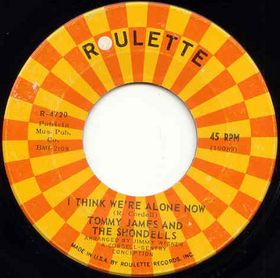 And once that happened, we sort of took control of our career. “I Think We’re Alone Now” was a very important moment for us, because I changed studios and began writing in earnest. I had a kind of epiphany that we were writing records, not songs. Suddenly you’re thinking verse / hook, formula – your writing suddenly had bookends it never had before.
And once that happened, we sort of took control of our career. “I Think We’re Alone Now” was a very important moment for us, because I changed studios and began writing in earnest. I had a kind of epiphany that we were writing records, not songs. Suddenly you’re thinking verse / hook, formula – your writing suddenly had bookends it never had before.
VENTRELLA: “I Think We’re Alone Now” also was important in relationship to other songs of the time because it didn’t sound like every other song.
JAMES: It started us down a new road. Up until that time, we pretty much had been a garage band. We really were! But with “I Think We’re Alone Now” we added Jimmy Wisner, who was our George Martin. We really started layering our records properly. Even though it was four track back then – when we first started out, there were four track but they were still recording everything at once even though things were put on different tracks. I sort of went through the technology and began to see how this turned into this and that became that – we literally went from four track to twenty four track right in front of my face. That happened in a very short period of time.
VENTRELLA: That song also made the public take you a bit more seriously too.
JAMES: I think so too. It was our fourth gold record in a row, and we were starting to declare our independence at that moment, really taking control of production. Although Bo and Ritchie were still producing us, basically they answered to me, not Morris. We were learning our craft.
VENTRELLA: And of course you were touring constantly too, and with a record every five months or something…
JAMES: Even sooner than that. We were averaging a record every 90 days.
VENTRELLA: “I Think We’re Alone Now” is sometimes called “the birth of bubblegum” which I don’t think you actually want as your…
JAMES: I think we accidentally invented bubblegum music!
VENTRELLA: But that sound came back again in the ‘new wave’ era, with the Cars and other bands…
JAMES: True enough. When we did “I Think We’re Alone Now” the term ‘bubblegum’ didn’t exist. It was sort of – with the eighth notes… it was just something we went through. It was actually something I had done years before that, and we just incorporated that into the song, and that became a sort of signature sound for us for a bit…
VENTRELLA: You used it in “Mirage” after that.
JAMES: Yes. It was the sound of the album.
VENTRELLA: But then, like the Beatles, you didn’t stick with one sound. There were a lot of bands back in those days that once they had found their sound, they never changed.
JAMES: True enough. It was very important for us to always stretch the envelope and I believe that it’s the reason why we had so many hits. You know, we ended up with twenty three gold singles and nine platinum albums and we sold over a hundred million records.
When you look at it, this was only an eight year period of time, but now it’s been forty four years in the major leagues. This is a business that maybe gives you two or three years, so truly I am very grateful for the longevity. It’s been an amazing time.
VENTRELLA: Back in the 60s when you were writing these songs, did you feel yourself in competition with anybody else?
JAMES: Yeah, everybody! Myself! 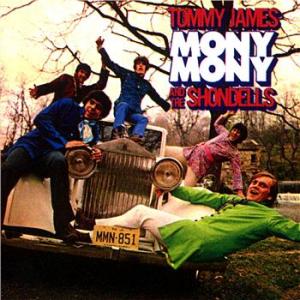 It’s funny, you know – for the first five or six years of your career (if you’re lucky enough to have it that long) you really believe that if you screw up, they can take it away from you.
It’s funny, you know – for the first five or six years of your career (if you’re lucky enough to have it that long) you really believe that if you screw up, they can take it away from you.
We were competing with all the big groups. We went head to head with the Rascals! They were great friends of ours, and we were always working together and they were always one hit record ahead of us. They started out just before we did, and we always felt like we were playing catch up with them. We’ve been friends all this time!
All the acts – we all worked together, we all compared notes. It was a time of incredible creativity. The 60s were an unbelievable moment, we just thought they’d go on forever.
VENTRELLA: Who did you listen to mostly?
JAMES: Who I listened to then, of course, was every radio station I could. You get to know everyone else’s records as good as your own, because you’re always listening hoping to hear your record on the radio. So you start learning everyone else’s records, and so by the time you work with them…
VENTRELLA: You could practically play the songs with them!
JAMES: That’s right! You could do their set.
VENTRELLA: Are you still living in New York?
JAMES: I live just outside of New York, in New Jersey. Where are you from?
VENTRELLA: I’m out in the Poconos, so I’m not too far away.
What cover songs of yours do you like the best?
JAMES: Wow!
VENTRELLA: There have been quite a few…
JAMES: There sure have. Well, Prince did a beautiful job of “Crimson and Clover” last year. The album went #1 and it was the first single. R.E.M. did a fine job with “Draggin’ the Line.” Oh boy! There’s a group from England called Tight Ship that did a great job with “Mony Mony.” That’s probably my favorite version. You know, Tom Jones just did “I’m Alive” around Christmas time. He did it on all the TV shows and it was really funny. He did a great job on it! He did a better job than I did!
But you know, we’ve had over 300 cover versions. Everyone from the Boston Pops to Billy Idol.
VENTRELLA: Let me ask you one questions I’ve been meaning to ask you. Did you really have a dog named Sam that ate purple flowers?
JAMES: I had a cat named Sam, but that just didn’t sound right! [laughs] I can’t sing “my cat Sam”!
VENTRELLA: No, that doesn’t flow right…
So there’s no chance of getting all that money that Morris owed you from all those years ago?
JAMES: Well, you know, the Good Lord has an amazing economy. This story, and with the movie – think of how boring it would be without Morris Levy! 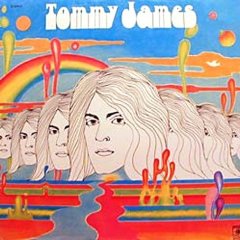 What kind of story would I have? “Me, My Mom, and the Music?” [laughs]
What kind of story would I have? “Me, My Mom, and the Music?” [laughs]
Truthfully, this is all payback for those years.
VENTRELLA: When I was a student in Boston, I worked for Strawberry’s record stores, and when I read your book I thought “Oh my God, I was working for the mob and didn’t know it!”
JAMES: Morris was an amazing individual. You read the book so you know all about him…
VENTRELLA: Well, I had heard of him before because of how he screwed over John Lennon.
Where are you performing now?
JAMES: We’re all over the country this year. If you go to my website, www.TommyJames.com, we’re not only performing but we’re doing the book tour.
VENTRELLA: Are you doing new material?
JAMES: Yes! Actually, the original Shondells and I are back in the studio doing music for the movie.
VENTRELLA: The originals?
JAMES: Yes, the originals from Pittsburgh. My touring group has been with me for about 25 years but the original players are with me back in the studio. We just did a really good version of “I Think We’re Alone Now” that we’re going to use for the closing credits. It’s slow. It’s completely opposite from the original record and it changes the meaning of the song. The last scene in the movie is when Morris Levy dies, so “I Think We’re Alone Now” – it really changes the meaning of the lyrics.
VENTRELLA: Wasn’t that song brought to you originally more as a ballad and then you sped it up?
JAMES: The circle is complete!
Filed under: writing | Tagged: Movies, music, nonfiction, Tommy James |


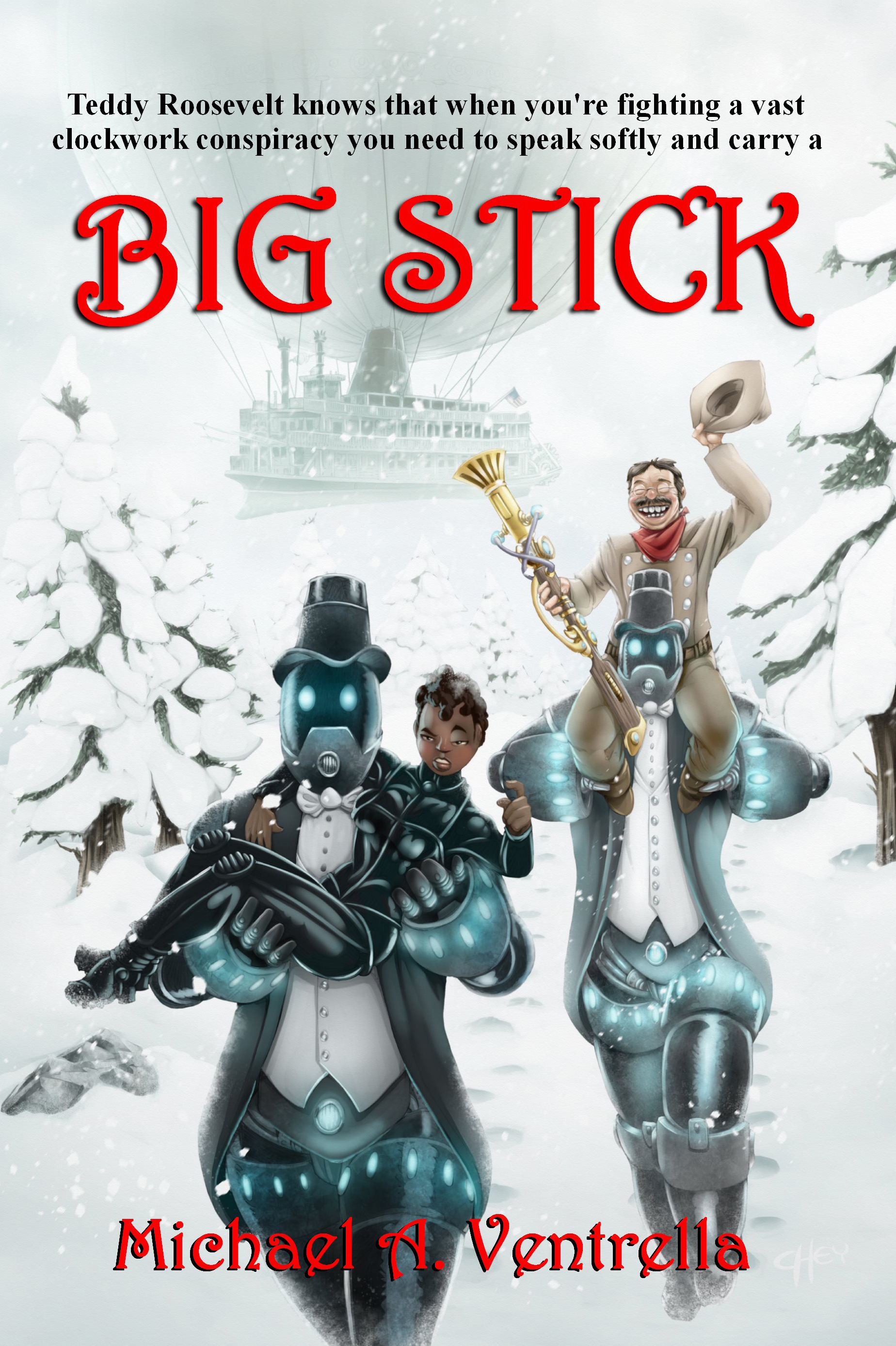
Great Interview! I love Tommy James and the Shondells and Im glad his book is doing well. Thanks for posting.
LikeLike
im just 15 and love tommy james.music is sooo good honestly probably better than todays, spent all summer listening to his music love mony mony but favorite is crimson and clover so poetic. cant wait till movie comes out
LikeLike